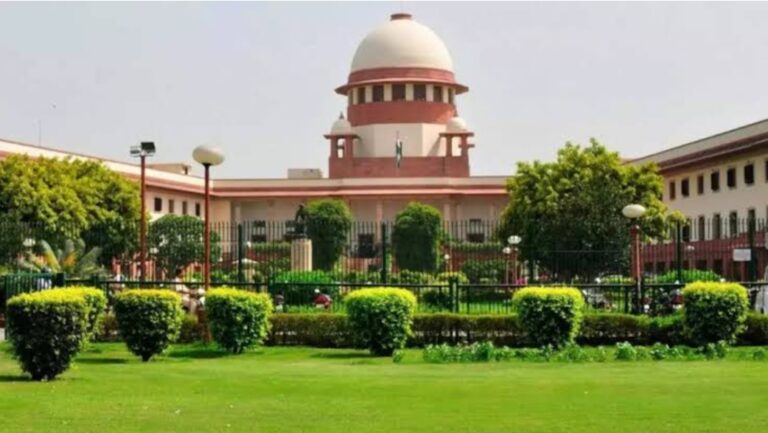The Supreme Court emphasized that such premature opinions could compromise both prosecution and defence if left unaddressed.
The Supreme Court came to the rescue of GST officials by overturning critical remarks made by the Gujarat High Court in an interim order on March 12. The High Court had raised doubts about the statutory protection under Section 157 of the Goods and Services Tax (GST) Act for GST officers involved in a search operation in a particular case.
A bench comprising Justices P.S. Narasimha and Aravind Kumar viewed the High Court’s comments as akin to “advance rulings” and expressed that they were more of a tentative opinion. The Supreme Court noted that the High Court had voiced its dissatisfaction, suggesting that the officials “may not” be protected or that it “may be difficult” to accept the good faith clause. The bench emphasized that such premature opinions could compromise both prosecution and defence if left unaddressed.
The case stems from a writ petition filed by the respondent seeking protection from arrest and coercive actions under the GST Act. The Gujarat High Court had criticized the GST search team for overstaying at the respondent’s residence, deeming it “unauthorized and illegal.” In response, the High Court issued the following observation:
“28. Lastly, the court may sound a word of caution to the authorities practising powers under the GST Acts. Sub-section (2) of section 157 of the GST Acts articulates that no suit, prosecution or other legal proceedings will count against any officer appointed or authorized under the Act for anything that is accomplished or intended to be accomplished in good faith under the Act or the rules incurred thereunder. A measure such as the current one which is not contemplated under any legal provision and which violates the fundamental rights of citizens under article 21 of the Constitution of India may not be shielded under the same section.”
The state government, dissatisfied with this observation, approached the Supreme Court with a plea. It was revealed to the court that the respondent was not interested in pursuing proceedings against the officers.
Good faith clauses in statutes provide immunity against suits, prosecutions, or legal proceedings for officials exercising statutory powers. However, this immunity is limited to acts carried out honestly and in furtherance of statutory objectives.
The Supreme Court clarified that the good faith clause serves as a defence for officials facing legal action. The court’s role is to scrutinize whether this defence is valid if invoked by an official. This scrutiny only occurs during proceedings against the statutory functionary, the Court emphasized.
“In light of the above context, we have reviewed the observations made by the High Court in Paragraph 28 as mentioned above. The High Court was not conducting a suit, prosecution, or other legal proceeding against a legal functionary,” the Supreme Court stated.
The Supreme Court granted the petition, affirming that the legal functionary is entitled to raise the defence of good faith.
To Access the CBIC Notification No. 8/2024-Central Tax CLICK HERE
Read More
GST Fraud: Delhi Businessman Arrested in Rs 15,000 Crore GST Fraud
GST Audit to be Conducted Jointly by Central & State Officials from FY 2024-25
